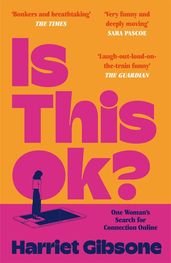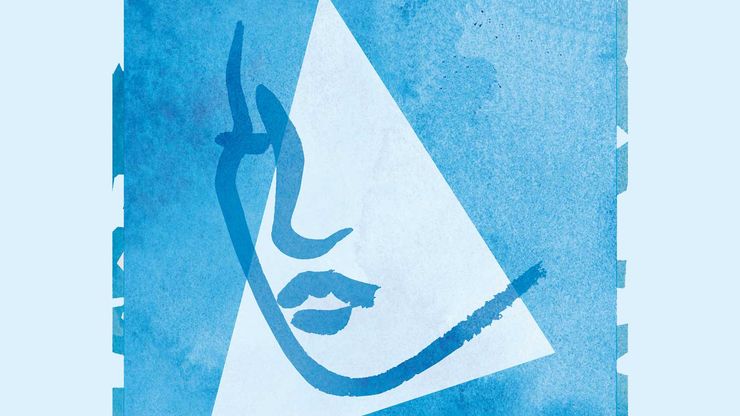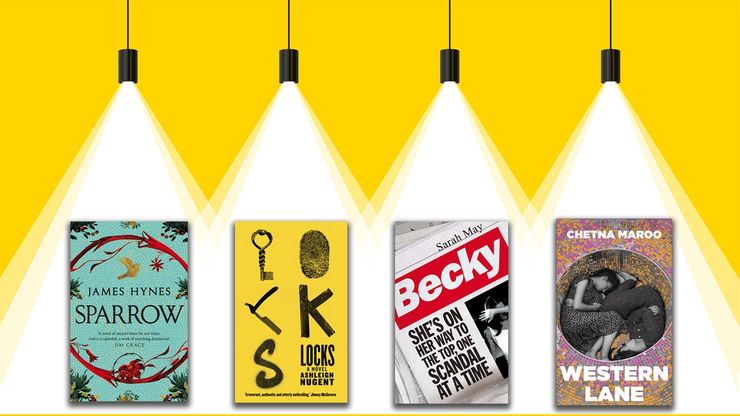'My phone became a porthole into possible types of motherhood': lockdown parenting, the internet and me
For journalist, new parent and self-confessed internet addict Harriet Gibsone, multiple Covid lockdowns, with no family, friends or health visitors, made finding a counterweight to the idealised lives of Instagram even harder.

Harriet Gibsone's 'persistently funny, ill-advisedly honest and deadly accurate' (Caitlin Moran) memoir Is This OK? recounts a life spent looking for connection in the age of the internet – feeding neuroses and insecurities with obsessive internet searching, and coming through IVF and a traumatic birth surrounded by mumfluencers. Here she discusses the high and lows of becoming a new parent in 2020, a period when we were all spending too much time online.
Nothing makes me more miserable than an Instagram photo of a woman in an art gallery carrying her newborn in a sling. I know that this type of snapshot of blissed out motherhood is a fraction of the full story: there would have been tears (mother and baby), red raw nipples (mother), milk burps (baby) and frantic nappy changes (baby, but anything goes in the fourth trimester). However, logic does not apply when I am confronted with the static image of two warm bodies absorbing the energy of inspiring culture and the hum of a room full of chattering humans. I am jealous of their pleasure. That they are lost in the majesty of something bigger than themselves. Taking a pause from the frightening, mind-numbing minutiae of parenting in still, stuffy isolation at home; a state of being I was trapped in permanently during my son’s first year.
My baby boy was born in January 2020, six weeks before the UK announced its lockdown. I am so grateful that I was not alone when I gave birth; that my baby arrived before partners were barred from entering the maternity ward. But regardless, I was traumatised by the event, which at every stage went haywire. My body was trollied into surgery moments after he was dragged from it, and for the next month we were both in and out of hospital. Visiting friends and relatives distracted me from the flashbacks and sharp jolts of stress that I was experiencing, which was eventually diagnosed as PTSD.
Then, of course, such distractions became illegal. We were told to fear physical touch and social interactions –that we must cut off our communities and the people we need the most. In my case this was other parents who could reassure, comfort and derail my sketchy thoughts – new mothers from NCT classes, or at Baby Bongo classes; or friends, my sister and sister in laws. But mainly my own mother, who I stared at on a cracked screen for fifteen minutes per day on FaceTime, while sometimes glancing down at my own, hollow eyes.
‘I kept trying to replicate the bucolic setups I’d see on Instagram – a mother sunbathing while the baby gurgled in a bouncer – but within seconds he’d be crying.’
Spring 2020 was spectacularly bright and golden, and I was desperate to leave our dingy frontroom and sit in our small patio back garden to soak up some Vitamin D. I kept trying to replicate the bucolic setups I’d see on Instagram – a mother sunbathing while the baby gurgled in a bouncer – but within seconds he’d be crying. So we’d stay inside, where I’d attempt to do some tummy time. Which also made him cry. So I tried to do a baby massage. Which made him burp, then cry. So we hugged, mainly, and walked around looking at cupboard door handles, fridge lights and the patterns on a curtain. On Fridays I’d mix things up by letting him hold a carrot or wooden spoon. In my down time, I tried to keep up with the zeitgeist and baked a banana bread. Cobbled together in a rush, a metric-based mistake meant that it came out of the oven completely flat. Nevertheless, I ate the whole thing in one sitting, stood over the sink before the shrieks of my now awake baby rattled my brain thirty minutes after putting him to bed.
As the hyper-vigilance and constant panic and rage of unresolved trauma set in, I tried to keep as busy as possible, and read blogs about baby development. I worried that, because we were stuck within the same four walls, because his only intellectually nourishing experiences involved staring at a piece of dried spaghetti that I'd stuck into a sieve, that I wasn’t stimulating his mind enough. I worried that he would have some kind of developmental issues as a teenager, drop out of school and become a cage fighter. I was therefore thrilled when I found a link to a woman who was hosting Baby Sensory sessions on Zoom, and purchased an online ticket immediately, bracing myself for an overload of cosmic colours, sounds and shapes. When I logged on, however, I saw just a woman on an iPad with a puppet. My baby wasn’t interested, but I was: I got to see the seventy other mothers in attendance, all of us waving at each other, like we were a really sad Brady Bunch. The grey living rooms and unwashed hair of the other parents was so comforting. Raw and ragged reality, so unlike the other motherhood I’d been absorbing on Instagram.
‘I got to see the seventy other mothers in attendance, all of us waving at each other, like we were a really sad Brady Bunch. The grey living rooms and unwashed hair of the other parents was so comforting. Raw and ragged reality, so unlike the other motherhood I’d been absorbing on Instagram. ’
I was under no illusion that maternity leave would be easy, and I was so thankful for my boy. But with a pandemic to contend with, me and so many other new parents were stripped of the fundamental safety net required to raise a baby and protect a parent’s sanity. With no family, friends or health care visitors, my phone became a porthole into possible types of motherhood I should subscribe to. “Jittering, greasy-haired woman waggling spork to pacify baby” was not one of them. “Harriet,” – a friend said of my frantic state one afternoon on the phone – “If you make it out of this with your marbles intact, I’ll be amazed.”
Three years later, I still struggle to talk about the period in which my brain was split between the vast pressure and responsibility of caring for a child alone, and the constant piercing shriek of birth trauma. I am quietly amazed that we accomplished it, all three of us in one room, every day, bickering, shrieking, embracing, hating, fearing and loving one another. The surreal, enforced isolation created an intense and magical connection that empowered me as a parent and bonded us profoundly. I still seethe when I see posts that boast about a maternity leave more expansive and bustling than ours, but it is fleeting. I am mostly proud. That we made it, marbles chipped, but whole.
Is This OK?
by Harriet Gibsone
'Some names and details pertaining to a number of the people mentioned in this memoir have been amended to protect their privacy. Arguably I should have done more to protect my own privacy, but here we are.'
So begins Is This OK?, a 'very real and very entertaining' (Bob Mortimer) account of growing up in the era of the early internet. Harriet Gibsone's extraordinarily honest and outrageously funny memoir recounts a life spent primarily feeding neuroses and insecurities with obsessive internet searching, her digital addictions eventually thrown into sharp relief by IVF, a traumatic birth and the tyrannical world of mumfluencers.
Find the perfect parenting books to support your parenting journey.



